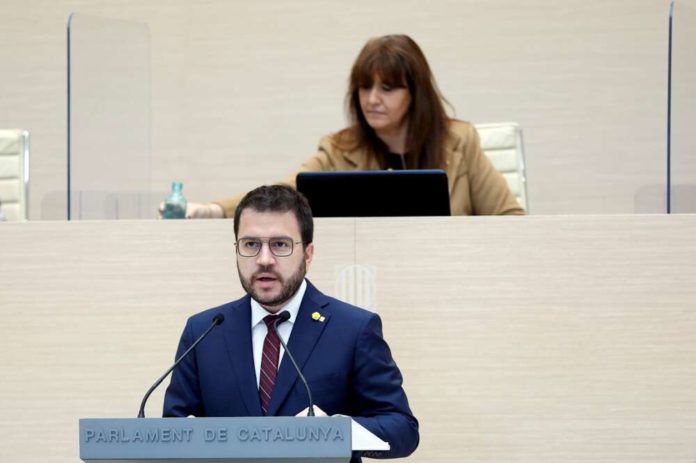The elections of February have strengthened the independence movement in Catalonia. For the first time, the sum votes of the three pro-independence political parties (ERC, Junts x CAT and CUP) has exceeded the barrier of 50%, although by just a little (52%). In a Catalan Parliament with 135 seats, ERC has gained 33 representatives, Junts x CAT 32 and CUP 9. They have a comfortable majority, if they want, to give another boost to the independence process.
Three and a half years have passed since October 1, 2017, when Catalonia organized a self-determination referendum. In that referendum the independence option was decided upon, with 92% of the votes. Despite the Spanish Government prohibiting the Referendum and using violence and repression to prevent it, participation in it was 43%.
Everyone knows what happened after the Referendum: Spanish judges sent some members of the Catalan Government to jail and other members of that Government had to go into exile to avoid prison. After annulling the autonomy of Catalonia, the Government of Spain took control of the Catalan institutions for three months, and then organized new elections. After those elections, in May 2018, a new Catalan Government was constituted.
That new Government, in practice, has taken no steps in the independence process during the last three years. And what is worse, the quarrels and differences between the partners of that Government (Junts x CAT and ERC) led to the bringing forward of the elections, after the President of Catalonia (Quim Torra) was removed from office by Spanish judges, accused of disobedience.
In our opinion, the Catalan independence process is now at a dead halt. Although it is true that the pandemic has caused a general demobilization during the last year, the enthusiasm and strength that existed in 2017 in Catalonia has largely faded, which is very worrying.
It must be borne in mind that in a process of this kind, if progress is not made, frustration and discomfort may appear, and that the passage of time only aggravates the situation. It has been nine years since the independence process was launched, and it is very difficult to permanently maintain the enthusiasm and the capacity for mobilization when expectations are not met.
On the other hand, the attitude of the pro-independence parties has not helped the national liberation process. Their quarrels and disputes are regrettable and it seems that they show more interest in achieving political dominance than in the independence of Catalonia (it is very significant, for example, that when we wrote this article, more than two months after the elections, they had been unable to reach a consensus on a new President). Unity is essential if one wishes to advance on the road to independence and even more so when the pro-independence sector, although a majority, is not large.
In NAZIOGINTZA’s opinion, only a strong and united government, willing to promote massive civil disobedience with all the consequences, can manage to unblock the current “impasse” and attract the attention of the international community, if the intensity of the conflict intensifies. Indeed, the international community will not intervene in the Catalan conflict if the political conflict maintains its current low intensity. Only the massive mobilization of the Catalans, peacefully but firm, and the political courage of the Catalan Government will succeed in attracting international mediation, which is essential to force the Spanish Government to sit at a table and negotiate self-determination. It is the only way out. We Basques know very well that Spain will never voluntarily negotiate the self-determination of the Basque Country or of Catalonia.
Finally, in our opinion the lessons of the referendum of October 1st 2017 and its political capital cannot be thrown into the rubbish bin of history, as it is a very important tool of international legitimisation.

